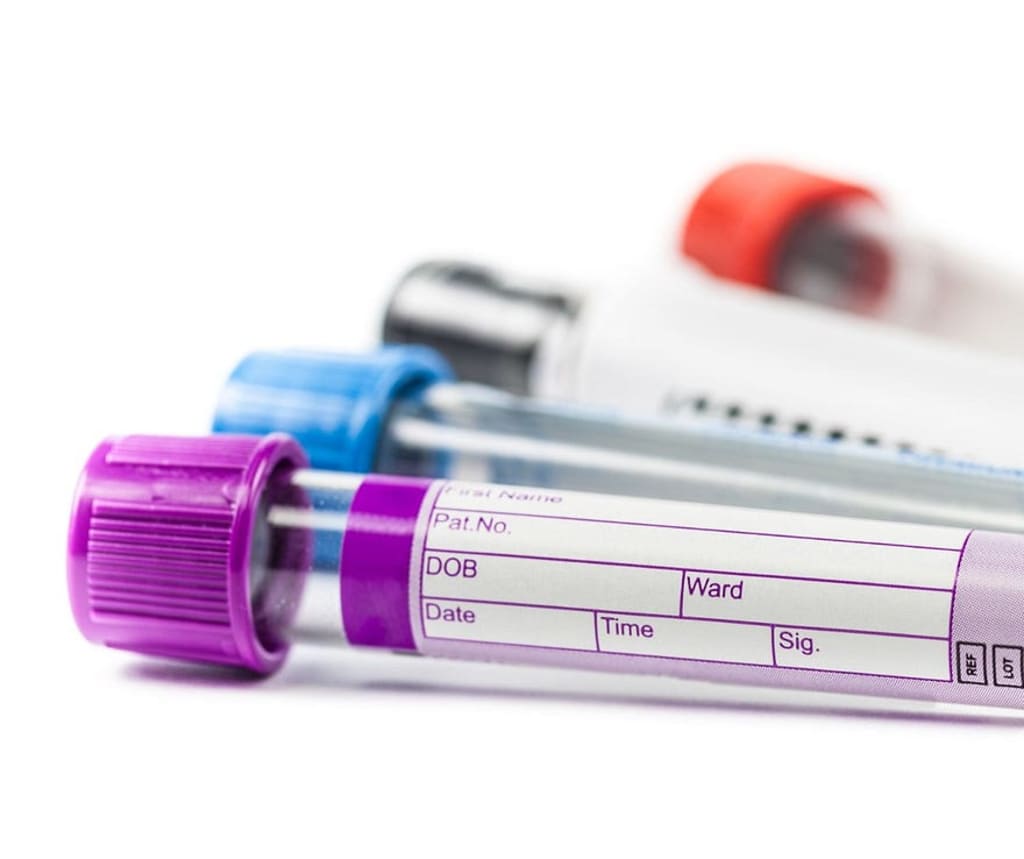Your Pet's Blood Work: What Does It All Mean?
A guide to routine lab work in pets.

I recently wrote an article that explains why your veterinarian may recommend doing blood work on your pet. If you haven’t had a chance to check it out, you can read it right here.
Now that you have decided to follow your veterinarian’s direction and have blood work done on your pet, you may be wondering what exactly they are testing.
Your pet’s blood chemistry is going to be checking the status of your pet’s internal organs.
It may or may not include the following (since there are many different panels to choose from):
- Albumin. This is the most important protein in the body, so it is included in most chemistry panels. If it is low, it may indicate liver, kidney, or intestinal disease.
- ALP. Short for Alkaline Phosphotase, an increase can indicate liver swelling or decreased bile flow caused by liver disease or endocrine disorders such as thyroid disease, diabetes, Cushing, Addison, and much more. It can also be an indication of certain bone diseases.
- ALT. Short for Alanine Aminotransferase, an increased level may be a sign of liver damage or disease.
- Amylase. This enzyme is produced to help digest food. Elevated levels can indicate disease of the pancreas, intestines, and kidneys.
- BUN. This is made in the liver and removed by kidneys, so it can be useful to evaluate both of these.
- Calcium. Calcium is used to monitor for certain types of cancer. An increase in Calcium can be an early sign of cancer.
- That being said, the imbalance of Calcium and Phosphorus can be indicative of certain metabolic diseases such as parathyroid gland and kidney disease.
- Cholesterol. Increased levels may be an indication of a variety of disorders, including — hyperthyroidism, as well as liver and kidney disease.
- Creatinine. This is an important value in monitoring kidney function.
- GGT. Short for Gama Glutamyl Transferace, this value is used to measure and monitor liver disease. It can also be used to differentiate different types of liver disease.
- Globulin. This is a body protein that indicates problems such as inflammation or infection.
- Glucose. Elevated glucose can indicate problems such as diabetes, while decreased levels can be associated with liver disease and other issues.
- Phosphorus. Unbalanced calcium and phosphorus indicate certain metabolic diseases, such as those of the parathyroid gland and kidney disease. It is important to monitor for kidney disease.
- Total Bilirubin. This is important to evaluate the liver and when red blood cells are low.
- Total protein. This value can help us determine many conditions, such as anemia and liver, kidney, and gastrointestinal diseases.
A Complete Blood Count, often shortened to CBC, is used to analyze the different cells in your pet’s blood to ensure that your pet’s body is working as it should.
In it, we will check the following:
- Red blood cells determine how much blood carries oxygen throughout your pet's body.
- White blood cells are useful in providing information about your pet’s immune system.
- Platelets will tell us how your pet’s blood will clot.
Many labs also check your pet’s electrolytes when they are doing a panel with a Chemistry and CBC.
These are critical for your pet’s health and may include the following:
- Potassium is important in the diagnosis and treatment of several life-threatening diseases.
- Sodium (Na) is important for total body function.
Your veterinarian may also recommend bloodwork to check your pet’s thyroid. Cats are more likely to be hyperthyroid where their thyroid works too well, and they can’t seem to put on any weight, no matter how much they eat. They may eat a lot of food, and continue to lose weight.
On the other hand, dogs are more likely to have hypothyroid when their thyroid doesn’t work well enough. These dogs can’t seem to lose weight, instead gaining weight, no matter how little they eat. They may also have skin problems.
If your pet is having trouble with his or her blood clotting, your veterinarian may recommend running a blood clotting time to see how long it takes for your pet’s blood to clot. This is commonly seen in Dobermans, famous for having Von Willebrand disease. However, it is also commonly seen in pets who have gotten into rat poison.
A urinalysis can also be helpful when determining the overall health of your pet. Your veterinarian can learn a lot through urine, including how hydrated your pet is. It also lets us know how well your pet’s kidneys are doing. Uncontrolled diabetes can also be diagnosed with a simple urinalysis.
Though you may be unsure about doing bloodwork on your pet, it can really tell your veterinarian a lot about your pet. The chemistry is going to check the status of your pet’s organs, including his or her kidneys and liver. The complete blood count will look at your red and white blood cells. Your veterinarian may also ask for a thyroid panel or a urinalysis.
***
Previously published on Medium and/or Newsbreak.
About the Creator
Shelley Wenger
Small town country girl in southern Pennsylvania. Raising two boys on a small farm filled with horses, goats, chickens, rabbits, ducks, dogs, and a cat. Certified veterinary technician and writer at Virtually Shelley.






Comments
There are no comments for this story
Be the first to respond and start the conversation.